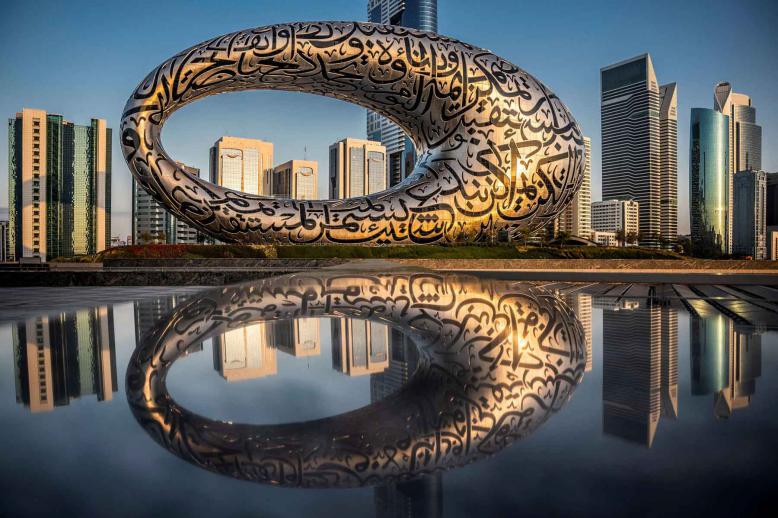Defiant Iraqi protesters rebuild torched camps
BAGHDAD - Anti-government demonstrators rebuilt torched protest camps across Iraq on Monday, seeking to keep up their movement's momentum after a rocket attack on the US embassy in Baghdad threatened an escalation.
The attack, which wounded one person, marked a dangerous shift after volleys of rockets in recent months targeted Iraqi military bases where American troops are deployed.
No faction has claimed responsibility but the US has repeatedly blamed Iran-backed military factions for previous incidents.
The latest attack sparked renewed fears that Baghdad could be dragged into a conflict between Tehran and Washington, weeks after tensions spiked following the US killing of a top Iranian general in Iraq.
Anti-government activists fear that such a conflict would derail their movement, the largest grassroots campaign Iraq has seen in decades.
Rallies erupted on October 1 in Baghdad and across Iraq's Shiite-majority south over corruption, joblessness and poor services.
Protesters are now specifically demanding snap elections, an independent premier and the prosecution of those implicated in corruption or recent bloodshed.
The demonstrators started ramping up pressure a week ago, sealing streets with burning tyres and metal barricades, but riot police responded with live rounds and tear gas.
Early on Monday, unidentified gunmen stormed a protest camp in the flashpoint southern city of Nasiriyah, torching tents and leaving nothing but metal frames and charred shreds of fabric, a correspondent there said.
The attackers also fired on activists who had been sleeping there, killing one and wounding four others, a medical source said.
But hours later, determined protesters had erected new tents and even brought cement blocks to build a one-room installation, signalling their determination to stay.
They shut two main bridges, and government authorities in the city announced their offices would be closed Monday.
Students rally, streets closed
In the oil-rich but impoverished southern port city of Basra, student protesters re-erected their tent city after it was dismantled by authorities over the weekend.
The main protest camp in the Shiite holy city of Najaf was also burned down overnight by unidentified gunmen, but protesters jumped into action Monday morning, blocking roads with burning tyres, one correspondent there said.
The uptick in violence this week has killed 21 protesters and wounded hundreds.
That brings the toll from the last four months of rallies and related violence close to 480 dead, the majority protesters, according to an AFP tally compiled from medics and security sources.
Demonstrators have feared that their movement may be eclipsed by tensions between neighbouring Iran and the US, which spiralled after the killing early this month of a senior Iranian commander in a US drone strike in Baghdad.
Iraq has slammed the strike as a violation of its sovereignty and parliament voted to oust the 5,200 US troops on American soil.
Capitalising on the anger, populist Shiite cleric Moqtada Sadr organised an anti-US march in Baghdad, attended by thousands.
Sadr is a notoriously fickle politician: he backed the anti-government protests early on even though he controls parliament's largest bloc and top ministerial positions.
After his march, he said he would not longer support the separate reform campaign, stoking fears among young activists that security forces now had a green light to crush their movement.
PM warns of broader war
Sadr's march on Friday was endorsed by leading figures from the Hashed al-Shaabi, a network of Shiite-majority armed factions formed to fight Islamic State group jihadists and since incorporated into the Iraqi state.
Most Hashed factions have close ties to Iran and are seen by the US as a dangerous extension of Tehran's influence.
Washington, which has seen its own sway in Baghdad diminish at the expense of Iran's, has blamed hardline Hashed factions for recent rocket attacks on the US embassy and American troops in recent months.
On Sunday evening, three rockets slammed into the US embassy in Iraq's capital, wounding one person, according to a senior Iraqi official and a US diplomatic sources.
No details were immediately available on whether the casualty was a US national or an Iraqi member of staff at the mission.
The US embassy did not immediately respond to requests for comment, while the US State Department called on Iraq to "fulfil its obligations to protect our diplomatic facilities".
Iraqi Prime Minister Adel Abdel Mahdi and Speaker of Parliament Mohammed Halbusi both condemned the incident, saying it risked dragging their homeland into war.






